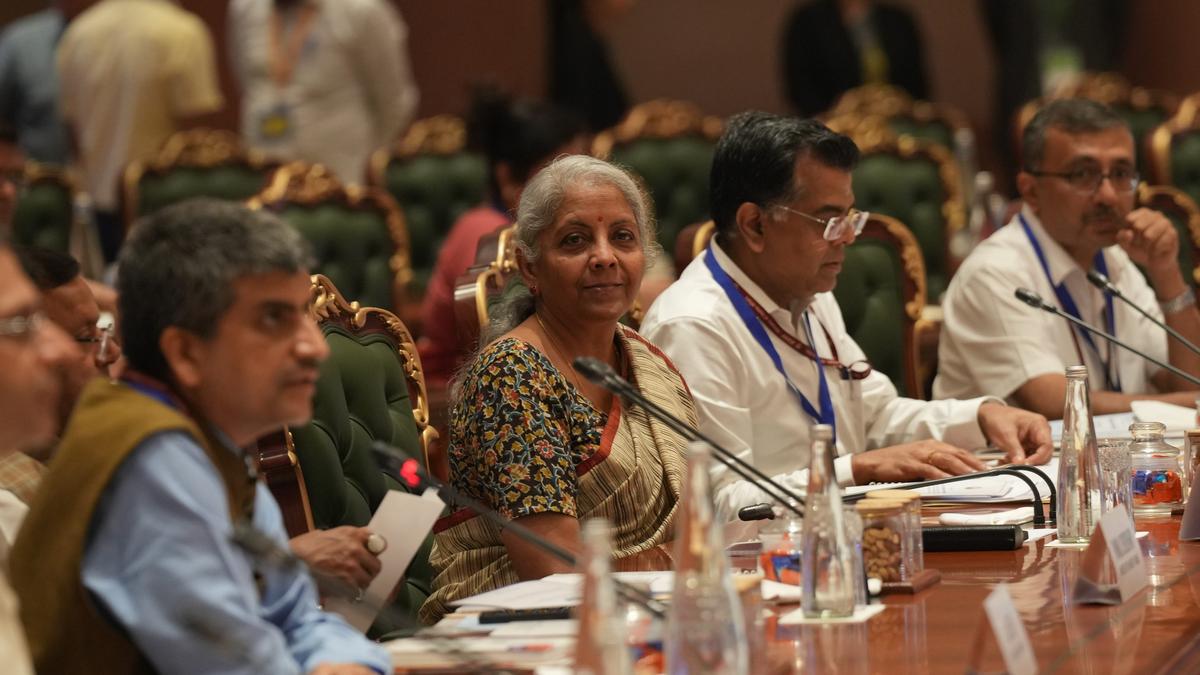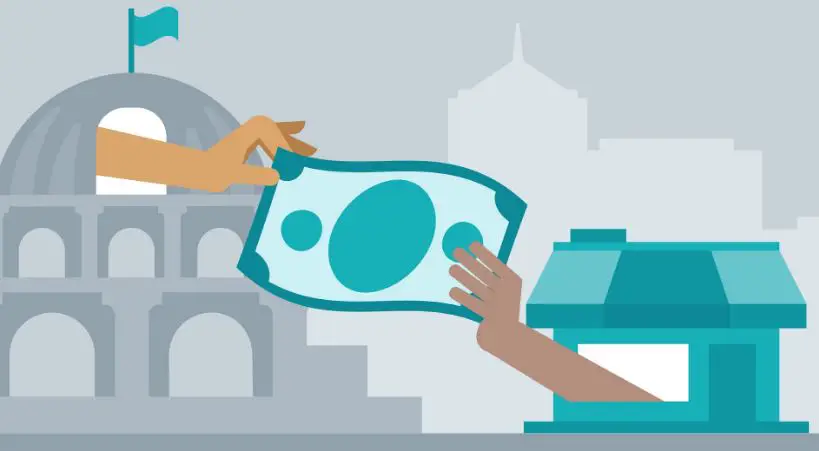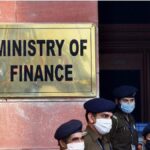Table of Contents
Pre-Budget Meeting Held by Union Finance Minister Nirmala Sitharaman
Union Finance Minister Nirmala Sitharaman chairs the pre-Budget meeting with Finance Ministers of all States and Union Territories in New Delhi on June 22, 2024.
| Photo Credit: PTI
Significance of the Pre-Budget Meeting
Union Finance Minister Nirmala Sitharaman chaired a pre-budget meeting with Finance Ministers of all States and Union Territories on June 22 to take suggestions for the upcoming Union Budget 2024-25.
Features of the Pre-Budget Meeting
The Union Finance Ministry began consultations on the Budget with different stakeholders a few days ago.
Objectives of the Pre-Budget Meeting
On June 19, Ms. Sitharaman chaired the first pre-Budget consultation meeting, which was attended by various stakeholders to gather input for the upcoming budget.
Effects of the Pre-Budget Meeting
Decisions and recommendations arising from the pre-budget meeting will impact the content and direction of the Union Budget 2024-25.
Pros and Cons
While the pre-budget meeting allows for valuable input from different entities, varying opinions and priorities may present challenges in finalizing the budget.
Fun Fact
Ms. Sitharaman will also chair the 53rd Goods and Services Tax (GST) Council Meeting, showcasing her active involvement in key financial matters.
Multiple Choice Questions
- Who chaired the pre-budget meeting with Finance Ministers of all States and Union Territories on June 22, 2024?
A) Pankaj Chaudhary
B) Nirmala Sitharaman
C) Chief Economic Adviser
D) Finance Secretary
Correct Answer: B) Nirmala Sitharaman
Explanation: The passage states that Union Finance Minister Nirmala Sitharaman chaired the pre-budget meeting on June 22, 2024.
- What does the Goods and Services Tax (GST) Council discuss in its meetings?
A) Budget allocation for different states
B) Administrative challenges faced by the Finance Ministry
C) Tax rates, policy modifications, and administrative challenges related to the GST regime
D) Economic development measures for Union Territories
Correct Answer: C) Tax rates, policy modifications, and administrative challenges related to the GST regime
Explanation: The passage mentions that the GST Council discusses issues related to tax rates, policy modifications, and administrative challenges of the GST regime in its meetings.
- When was the Goods and Services Tax (GST) introduced in India?
A) July 1, 2016
B) July 1, 2017
C) July 1, 2018
D) July 1, 2019
Correct Answer: B) July 1, 2017
Explanation: The passage states that the Goods and Services Tax was introduced in India with effect from July 1, 2017.
Brief Summary | UPSC – IAS
Union Finance Minister Nirmala Sitharaman chaired a pre-budget meeting with Finance Ministers of all States and Union Territories to gather suggestions for the upcoming Union Budget 2024-25. She has been holding consultations with various stakeholders, including economists, finance experts, and industry bodies. In addition to the pre-budget meeting, Sitharaman also chaired the 53rd Goods and Services Tax (GST) Council Meeting with State Finance Ministers in attendance. The GST Council plays a crucial role in shaping India’s indirect tax system, discussing issues regarding tax rates, policy modifications, and administrative challenges. The decisions and recommendations from this meeting are closely watched by stakeholders as they have the potential to impact taxation, trade, and the economy overall. The GST was implemented in India in July 2017, and states were assured compensation for revenue losses for five years under the GST (Compensation to States) Act, 2017.







